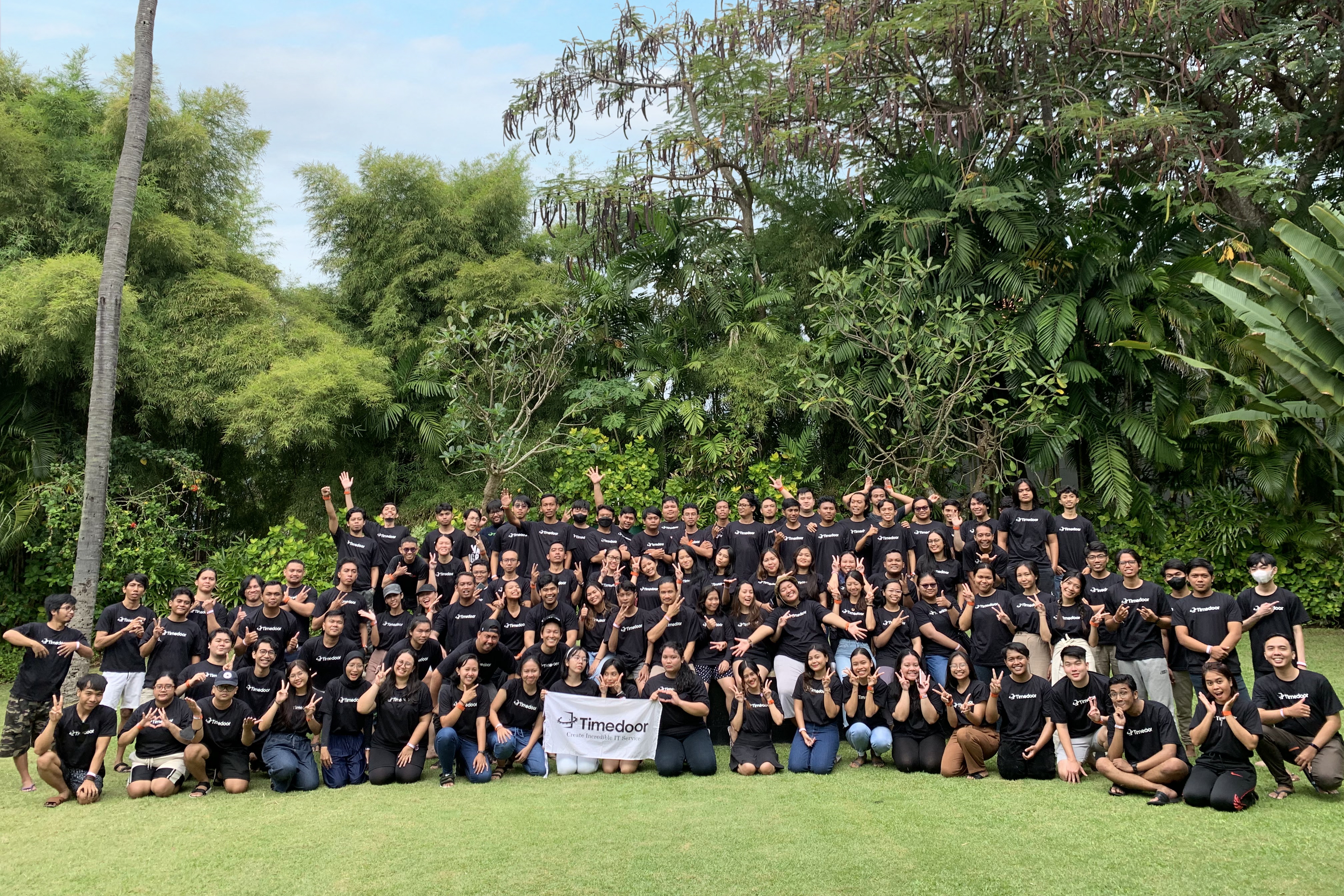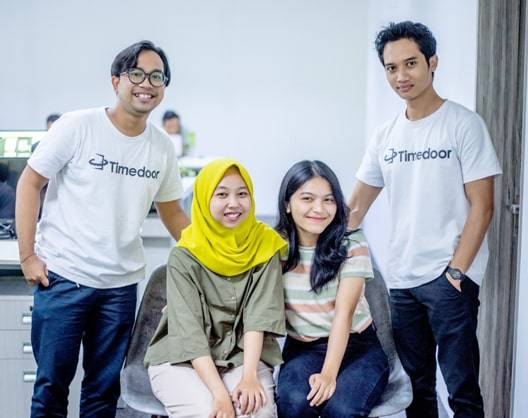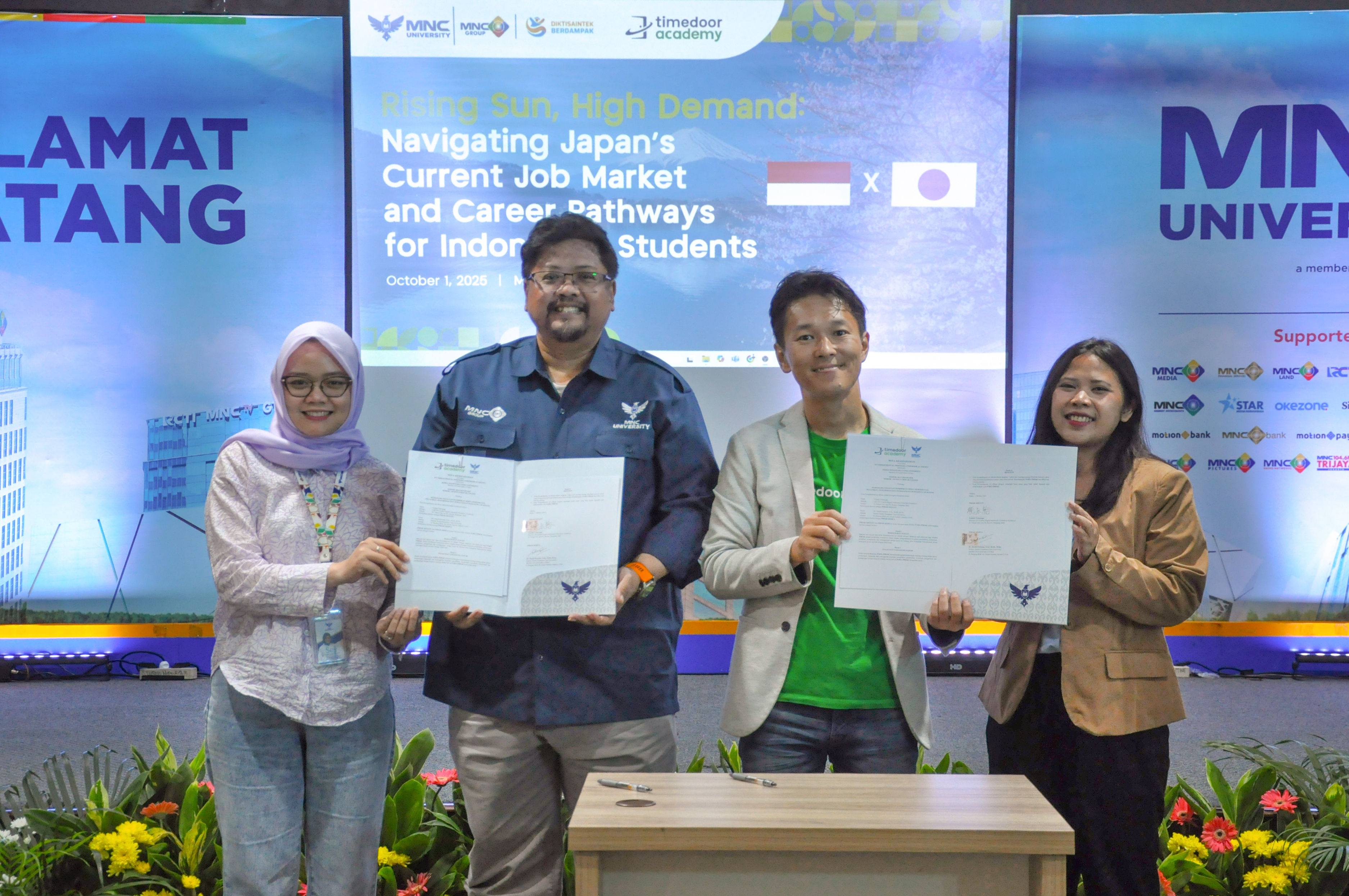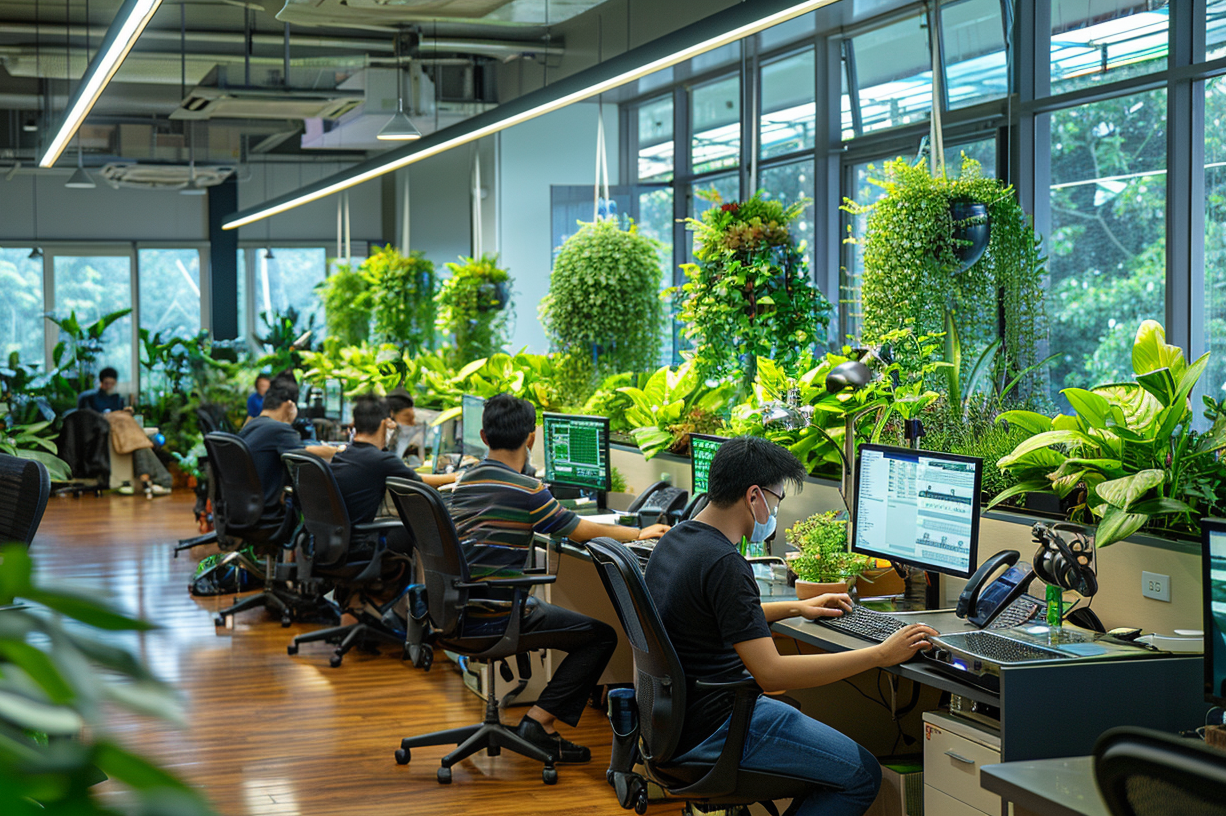June 25, 2025 •
Which Country Is the Best for Offshore Development? A Comprehensive Comparison of Global Offshore Development
Offshore development has become a growing trend in Japan, where the population is declining and IT talent shortages are becoming increasingly evident. With low labor costs as a key driver, many companies are attempting to significantly reduce development expenses by leveraging overseas engineering resources. However, due to economic growth and currency fluctuations, especially in emerging countries, engineer rates have been gradually rising. Some companies may still be evaluating which country would be the best choice for establishing an offshore development base. In this article, we will take an in-depth look at the current state and appeal of offshore development across various countries.
Criteria for Selecting and Evaluating Offshore Development Partners
When companies utilize offshore development, it is essential to fully understand the factors that contribute to project success. Understanding these critical points in advance can significantly influence the overall outcome of the project and help avoid costly mistakes.
Understanding Differences in Country Characteristics
There are numerous offshore development hubs around the world, each with its own unique characteristics. When selecting a development partner, it is crucial to understand the specific attributes of each country and choose one that best matches your company's requirements. This process involves comparing time zones, official languages, labor costs, and the social and political conditions of each country. Proper evaluation of these elements enables smooth communication, efficient project execution, and improved overall outcomes.
COUNTRY
TIME DIFFERENCE
OFFICIAL LANGUAGE
LABOR COST
POLITICAL/SOCIAL CONDITIONS
Indonesia
1–2 hours
Indonesian
◎
◎
Vietnam
2 hours
Vietnamese
△
○
Myanmar
2.5 hours
Burmese
◎
×
China
1 hour
Chinese
△
△
India
3.5 hours
Hindi, English (de facto official)
△
○
Philippines
1 hour
English, Filipino
○
○
Bangladesh
3 hours
Bengali
◎
△
Ukraine
6 hours
Ukrainian
△
×
Offshore Development Costs Around the World
One of the main reasons why offshore development has gained attention is the ability to reduce development costs by utilizing low-cost engineering resources from overseas. However, recently, due to rapid yen depreciation and economic growth in emerging countries, engineer rates have been gradually increasing. In this regard, Indonesia, along with Myanmar, remains one of the countries offering clear cost advantages. Moreover, offshore development is not only valued for cost reduction but also recognized as an effective way to secure skilled talent. Recently, due to political instability in Myanmar, Indonesia—which boasts the fourth-largest population in the world—is drawing high expectations globally.
Source: Offshore Development White Paper (2023 Edition)
Offshore Development Status in Indonesia
Indonesia is gaining attention as a cost-effective offshore development hub. Its appeal lies particularly in affordable labor, improving technical capabilities, and a large youth population. As the largest country in Southeast Asia, Indonesia has a population exceeding 280 million, with more than half under the age of 30. Young workers are flexible to new technologies and trends, and their strong learning motivation makes them a valuable asset for the IT industry. Engineer costs are lower compared to other countries, and technical education is advancing, making Indonesia an ideal option for many companies. However, challenges include a relatively short history of offshore development and difficulties in finding reliable partners.
Promising Offshore Development Cities in Indonesia:
Jakarta : The capital city and economic center, home to many IT companies and startups.
Bandung : Known as an educational city, with a high concentration of IT professionals.
Surabaya : Indonesia’s second-largest city and a commercial and industrial hub with growing IT companies.
Bali : A popular tourist destination and rising tech hub for digital nomads.
Yogyakarta : A cultural and academic city with many universities and low labor costs.
Universities Producing Talented Engineers in Indonesia:
Institut Teknologi Bandung (ITB) : One of the most highly regarded technical universities.
Universitas Gadjah Mada (UGM) : A top university covering a wide range of academic fields.
Universitas Indonesia (UI) : A prestigious university known for its strong engineering and IT programs.
Institut Teknologi Sepuluh Nopember (ITS) : Highly rated for engineering and IT in Surabaya.
Universitas Diponegoro (UNDIP) : Located in Central Java, producing excellent engineers.
Other Articles: eFishery Startup Fraud: Why Financial Transparency Builds (or Breaks) Public Trust in Business
Offshore Development Status in Vietnam
Vietnam is very popular among Japanese companies as an offshore development location. The background includes a pro-Japanese national character, diligent workforce, geographical proximity, and low costs. The Vietnamese government actively supports the cultivation of IT talent, making resource acquisition easier. Japanese language education is also well-developed, resulting in a large pool of bilingual talent. This has led to increased capability in advanced system development, AI, blockchain technology, and packaged software development. However, rising labor costs due to economic growth may reduce previous cost benefits. Offshore development companies are expanding beyond major cities like Hanoi and Ho Chi Minh City to smaller cities, broadening available options. As interest in Western markets grows, Vietnam’s IT industry is expected to gain even more attention.
Promising Offshore Development Cities in Vietnam:
Hanoi : The capital and center of the IT industry.
Ho Chi Minh City : Economic hub with many startups.
Da Nang : A tourist destination with growing IT companies.
Haiphong : Industrial city with growing IT development.
Can Tho : Center of the Mekong Delta, gaining attention in IT.
Universities Producing Talented Engineers in Vietnam:
Hanoi University of Science and Technology (HUST) : Top technical university.
Ho Chi Minh City University of Technology (HCMUT) : Highly rated in engineering.
Danang University of Technology (DUT) : Strong program in IT.
Haiphong Private University (HPU) : Strong focus on engineering education.
Can Tho University (CTU) : Leading university in the Mekong Delta.
Offshore Development Status in Myanmar
Since democratization in 2016, Myanmar has seen increased foreign investment and improvements in IT infrastructure. It was once a popular offshore development destination due to its low labor costs. However, following the 2021 coup, political instability has increased, leading some companies to pause orders due to risk concerns. Despite this, local offshore development continues to operate, and there is potential for cost benefits. Companies must conduct careful risk assessments while leveraging Myanmar’s advantages to achieve success.
Promising Offshore Development Cities in Myanmar:
Yangon : Largest city and economic center.
Mandalay : Educational center with growing IT industries.
Naypyidaw : Political capital with modern infrastructure.
Bago : Industrial city with growing IT potential.
Taunggyi : Emerging IT hub.
Universities Producing Talented Engineers in Myanmar:
Yangon Technological University (YTU) : Largest engineering university.
Mandalay Technological University (MTU) : Highly rated in engineering.
Naypyidaw Technological University (NPTU) : Government-supported and growing.
Bago Technological University (BGTU) : Strong in industrial technology education.
University of Mandalay (NUM) : Nationally recognized university.
Offshore Development Status in China
China’s offshore development market has seen a decline in recent years, but many companies still use Chinese offshore development firms. Although the market remains large, long-term strategies are necessary considering country risks and rising labor costs. Companies with existing operations in China are exploring new offshore opportunities while maintaining collaboration with current bases. China’s technological capabilities are high, particularly in software development for manufacturing, IoT, and AI. However, political risks and intellectual property protection concerns require careful consideration when building partnerships.
Promising Offshore Development Cities in China:
Beijing : Capital with headquarters of many large companies.
Shanghai : Economic hub with many international IT companies.
Shenzhen : Innovation and technology center.
Guangzhou : Commercial city with developed IT industry.
Chengdu : Economic center in western China with thriving IT development.
Universities Producing Talented Engineers in China:
Tsinghua University : Most highly rated university in China.
Peking University : Globally recognized university.
Shanghai Jiao Tong University (SJTU) : Famous for technical studies.
Zhejiang University (ZJU) : Strong in engineering and IT.
Huazhong University of Science and Technology (HUST) : Highly rated in technical education.
Offshore Development Status in India
India is a pioneer in offshore development and widely used by many companies. English is an official language, and the country boasts abundant IT talent and high technical skills. India excels particularly in software development, AI, and data science, and is highly regarded globally. While costs are slightly higher compared to other Asian countries, competitiveness remains strong. However, rising wages due to economic growth and intense competition in urban areas can be drawbacks. India’s mature IT industry can handle complex projects, so many companies continue to choose India.
Promising Offshore Development Cities in India:
Bangalore : India’s Silicon Valley, with many IT companies.
Pune : Education hub with many IT companies.
Hyderabad : Hub for IT and biotechnology.
Chennai : Automotive and IT industry hub.
Noida : Emerging IT city near Delhi.
Universities Producing Talented Engineers in India:
Indian Institute of Technology (IIT), Bangalore : Authoritative engineering university.
Indian Institute of Technology (IIT), Mumbai : Globally recognized engineering university.
Banaras Hindu University (BHU) : Historic university strong in IT.
BITS Pilani : Prestigious private university with strengths in engineering and IT.
Indian Institute of Technology (IIT), Delhi : One of India’s top universities.
Other Articles: How Mobile Apps Transformed Business for Pande Putri and OrangeCare Taiwan
Offshore Development Status in the Philippines
The Philippines is expanding its share in offshore development due to its strong command of English, making it attractive for companies requiring English communication. As Japanese companies globalize, demand for English-based IT development is increasing, and the Philippines is growing to meet this need. Filipino engineers excel in software development, web development, and BPO (Business Process Outsourcing). Supported by government initiatives, IT education is robust, and the country produces many high-quality talents. However, infrastructure challenges, time zone differences, and project management difficulties are notable drawbacks. Companies should consider these factors while leveraging the Philippines’ advantages to succeed.
Promising Offshore Development Cities in the Philippines:
Manila : Capital and economic/tech hub with many IT and BPO companies.
Cebu : Popular tourist destination with rapidly developing IT industry.
Davao : Business-friendly city in Mindanao with growing IT infrastructure.
Clark : Former U.S. military base turned business hub with many international companies.
Iloilo : Emerging economic city focusing on BPO and IT services.
Universities Producing Talented Engineers in the Philippines:
Ateneo de Manila University : Top private university with strong IT and computer science programs.
University of the Philippines : National university with diverse academic excellence.
De La Salle University : Highly rated in engineering and technology education.
University of Santo Tomas : Oldest university in the Philippines with comprehensive programs.
Cebu Institute of Technology : Provides practical skills and strong industry ties.
Offshore Development Status in Bangladesh
Bangladesh is experiencing rapid economic and IT sector growth. Its strengths include a young and affordable workforce, with government-led efforts to cultivate IT talent. Many engineers are fluent in English, reducing communication barriers. While many companies are choosing Bangladesh as an offshore development base, challenges remain such as political instability and insufficient infrastructure. Nevertheless, Bangladesh holds great potential, and with proper management and risk control, significant results can be achieved.
Promising Offshore Development Cities in Bangladesh:
Dhaka : Capital and economic/tech center.
Chittagong : Commercial city with improving IT infrastructure.
Sylhet : Growing city with developing IT industry.
Cox’s Bazar : Tourist hotspot with emerging IT companies.
Khulna : Industrial city and emerging IT hub.
Universities Producing Talented Engineers in Bangladesh:
Bangladesh University of Engineering and Technology (BUET) : Premier engineering university.
University of Dhaka (DU) : National university offering diverse academic programs.
Chittagong University of Engineering and Technology (CUET) : Highly rated for engineering.
Sylhet University of Science and Technology (SUST) : Strong in IT.
North South University (NSU) : Private university focused on IT education.
Offshore Development Status in Ukraine
Ukraine is rapidly developing as a center for IT development in Eastern Europe. It is home to many talented engineers supported by a strong education system, particularly excelling in software development and IT security. Proximity to the European Union means many Western companies choose Ukraine as an offshore development base. Costs are lower than in Western Europe, and communication is generally smooth in English. However, political instability and regional conflicts pose risks. By carefully managing these risks, many companies successfully leverage Ukraine’s high technical expertise.
Promising Offshore Development Cities in Ukraine:
Kyiv : Capital and center of the IT industry.
Lviv : Cultural and educational center with many IT companies.
Kharkiv : Home to many technical universities and growing IT industry.
Odessa : Trade and IT development hub.
Dnipro : Industrial city with growing IT sector.
Universities Producing Talented Engineers in Ukraine:
National Technical University of Ukraine “Kyiv Polytechnic Institute” (KPI) : Largest engineering university.
Lviv National University (LNU) : Historically renowned with strong IT programs.
Kharkiv National Polytechnic University (KhPI) : Highly rated in technical fields.
Odessa National Polytechnic University (ONPU) : Strong in trade and IT.
Dnipro National University (DNU) : Well-regarded in engineering education.
Other Articles: Why Your Website’s Post Thumbnail Matters in the Age of AI-Driven Search
Recommended Offshore Development Companies Worldwide
PT. Timedoor Indonesia
Timedoor is a rare offshore development company based in Bali, Indonesia. Celebrating its 10th anniversary, Timedoor has extensive experience developing websites and mobile apps for both Indonesian and Japanese companies. We also run a children's programming school that has taught over 5,000 students, establishing ourselves as a locally rooted IT company.
[embed]https://youtu.be/yXZ4Zk2Q4rU?si=wuMx-QOko3MGbTkE[/embed]
👉 Contact Us
Monster Lab Holdings Co., Ltd.
This company operates internationally with a focus on digital transformation (DX). With broad knowledge and rich development experience, it supports multilingual development projects, making it ideal for non-Japanese language initiatives.
Hybrid Technologies Inc.
With offices in Japan and Vietnam, this company has a long history in the Vietnamese market and offers a wealth of experience and reputation. Services include game app development and operation, system development, and marketing.
Sun Asterisk Corporation
With development bases primarily in Japan and Vietnam, this company began with DX consulting and now handles all stages from design to implementation. With diverse development resources, they support web services, business systems, games, e-commerce sites, and more.
MothersonSumi Infotech & Designs Corporation
Based in Japan and India, this company is part of the Samvardhana Motherson Group, a major automotive parts manufacturer. They specialize in offshore development in India and offer IT support services.
Individual Systems Corporation
Operating in Japan and Vietnam, this company specializes in offshore development for Japanese companies and is gaining recognition as a Japanese-affiliated IT company in Vietnam. They offer extensive experience in business system development and strong support for companies considering entry into Vietnam.
Innovate Inc.
Headquartered in Japan, this company collaborates with Vietnamese system vendors to deliver development projects. With rich experience in web application development, it quickly responds to system-building needs and supports infrastructure construction and system maintenance.
Wakka Inc.
Through partnerships with Vietnamese companies, this firm efficiently manages development projects. By outsourcing tasks to specialized firms, they optimize systems and costs.
Capital Knowledge Corporation
With operations in Japan and Myanmar, this company meets diverse technical needs ranging from web applications to e-commerce sites, AI development, and website creation. With rich experience serving Japanese clients, it is a trusted partner.
Orient Software Corporation
This company develops systems across Asia, Oceania, and Western markets, with active investments in cutting-edge technologies like AI. It has extensive experience in mobile and web app development.
Satellite Office Corporation
A Vietnamese IT company with bases in Ho Chi Minh City and Hanoi, specializing in cloud computing. As a group company of Japan’s leading system developer “Satellite Office,” it offers stable operations and reliable service delivery.
Summary
Offshore development is no longer just about cost reduction—it is also a crucial strategy for securing talented engineers. Countries in Southeast Asia, with large populations and youthful demographics, are drawing global attention. Going forward, companies must carefully monitor offshore development trends in each country and work with optimal partners while balancing cost efficiency and quality. Based on these dynamics, offshore development will continue to be a key strategic tool in global business.
Glossary
Offshore Development : Developing software or systems using overseas resources, primarily aimed at cost reduction and access to skilled talent.
Engineering Resources : Skilled personnel and technical capabilities required for software and system development.
Currency Fluctuation : Changes in exchange rates that significantly impact international business.
Economic Development : Growth of a nation’s economy and advancement of industries, often linked to improved living standards.
Labor Cost : Total amount paid to employees in salaries and wages. Lower labor costs are a key attraction in offshore development.
Political Instability : Unstable political conditions such as coups or unrest that can affect business operations.
Official Language : Primary language used in a country, a critical factor for communication in offshore development.
FAQ
What are the main benefits of offshore development?
The main benefits include access to high-quality technical resources at lower costs and the ability to develop around the clock by leveraging different time zones.
What are the risks associated with offshore development?
Key risks include communication issues due to language and cultural differences, project management challenges, and political or economic instability.
What are the keys to successful offshore development?
Success depends on selecting the right partner, maintaining clear communication, and implementing effective project management practices.
Which country should I choose for offshore development?
The choice depends on project requirements, but factors like technical capability, cost, and political stability should be considered.
How are offshore development trends changing?
Recently, there is a shift toward regions offering innovative technologies and specialized expertise, rather than just cost savings.
Looking for E-commerce MobileApp for your Retail business? Learn more on APPMU
Read more



![]()



